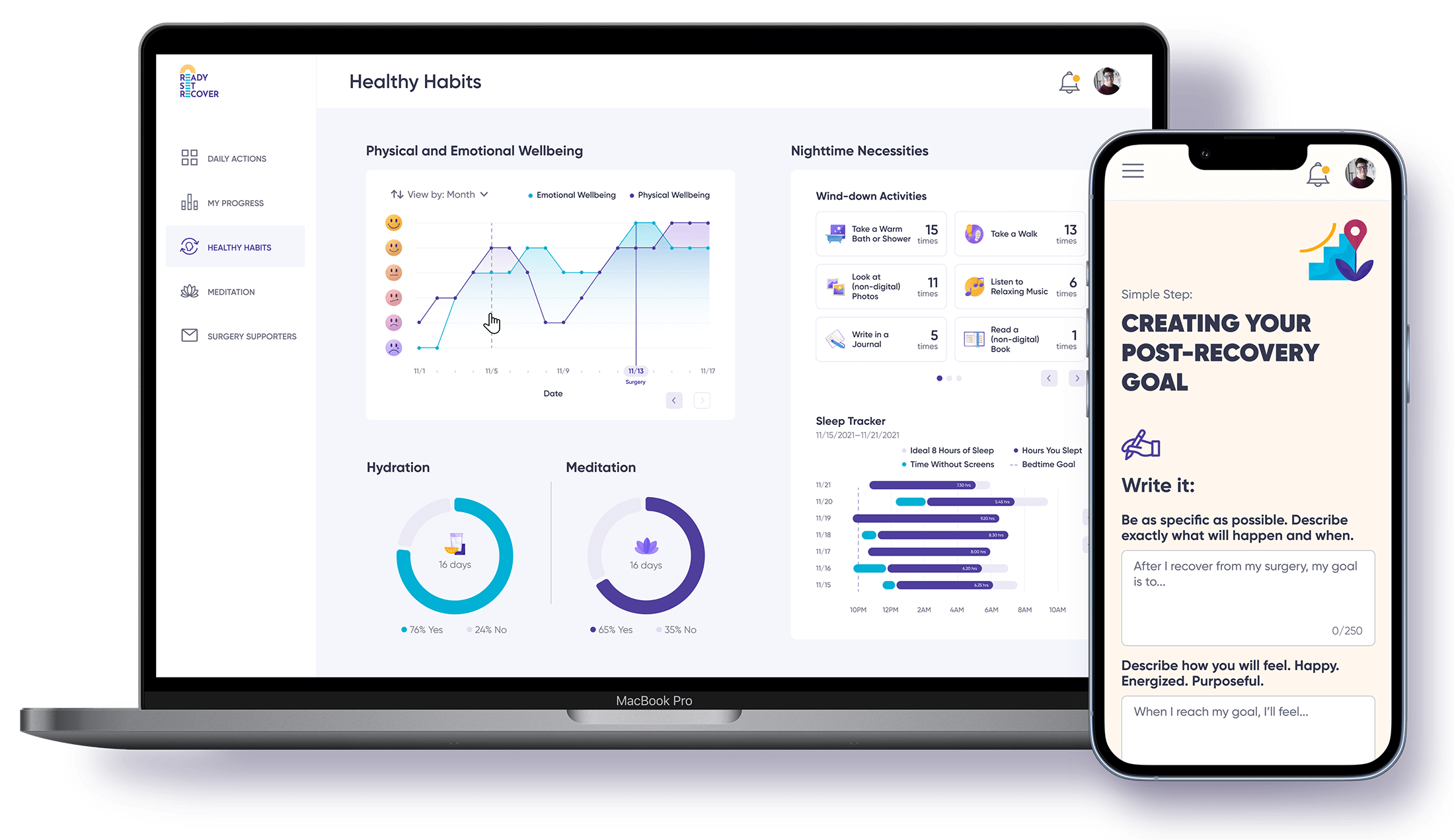Gastric Bypass Explained: What to Know Before Surgery


Is gastric bypass surgery the solution you’ve been searching for in your fight against obesity after speaking with a team of professionals dealing with Bariatric surgery? Offering a potential path to rapid and significant weight loss, gastric bypass surgery can also positively impact numerous obesity-related health conditions. This article provides a direct and clear understanding of gastric bypass surgery, outlining this life-altering procedure, who it’s best suited for, the lifestyle changes to anticipate, and the potential for lasting health benefits and risks.
Key Takeaways
Gastric bypass surgery facilitates weight loss by creating a smaller stomach pouch and rerouting the small intestine, which reduces food intake and caloric absorption, leading to improvements in obesity-related conditions such as type 2 diabetes, complications of arthritis, and high blood pressure.
The surgery comes with potential short-term and long-term risks, including bleeding, infection, blood clots, nutritional deficiencies, and dumping syndrome, necessitating comprehensive pre-surgery preparation and careful post-surgery monitoring.
Long-term success post-surgery relies on patients maintaining strict dietary guidelines, consistent physical activity, supportive networks to manage potential setbacks, sustain weight loss, and health improvements.
What Is Gastric Bypass Surgery and How Does It Work?

Gastric bypass surgery is a procedure that helps people lose weight by changing how their digestive system processes food. Because of these changes, gastric bypass surgery can lead to long-term weight loss and help manage conditions like high blood pressure, diabetes, and sleep apnea.
By reducing the stomach size and rerouting the small intestine, gastric bypass surgery:
Alters the stomach and intestines to address obesity and its associated conditions, such as diabetes, high blood pressure, and osteoarthritis
Decreases hunger
Restricts food consumption
Diminishes calorie absorption
The Procedure
This procedure helps lose weight by fashioning a smaller stomach pouch, which holds less food, and altering the small intestine to reduce absorption. This modification reduces hunger and increases fullness, leading to a reduction in body mass index (BMI).
During a specific type of gastric bypass surgery known as Roux-en-Y, the small intestine is surgically divided a short distance below the primary stomach and then linked to the newly created pouch. The larger portion of the stomach remains capable of producing digestive fluids, which flow into the small intestine through the reconnected section. This rerouting of food results in fewer absorbed nutrients and calories, triggering swift weight loss.
The newly fashioned pouch, about the size of an egg, is substantially smaller than the original stomach. This limits the amount of food and drinks that can be comfortably consumed at once.
Types of Gastric Bypass Surgeries
Various types of gastric bypass surgeries are available, such as Roux-en-Y and Biliopancreatic Diversion with Duodenal Switch (BPD/DS). These weight loss procedures are designed to help individuals achieve significant weight loss and improve their overall health.
The Roux-en-Y procedure is widely recognized as the most frequently conducted form of gastric bypass surgery. It is known for its effectiveness in promoting weight loss and improving obesity-related health conditions. To be eligible for this procedure, patients must meet certain requirements, such as having a BMI of 40 or higher, or a BMI of 35 or higher with obesity-related health conditions.
The BPD/DS procedure entails the creation of a tube-shaped stomach pouch and the bypassing of a portion of the small intestine. This innovative surgical technique involves two main steps. The first step is the creation of a smaller, tube-shaped stomach pouch from the larger stomach. This smaller stomach is designed to restrict the amount of food intake, thus helping the patient feel full quicker. The second part of the procedure involves rerouting a significant portion of the small intestine to the newly created stomach pouch. This bypass of the small intestine results in reduced absorption of calories and nutrients, further aiding in the weight loss process. It's important to note that this procedure is typically reserved for individuals with a BMI of 50 or higher or those with a BMI of 40 or higher who also suffer from severe obesity-related health conditions.
Benefits of Gastric Bypass Surgery

Gastric bypass surgery is not just about losing weight; it’s about gaining health. This surgery leads to substantial weight loss by causing malabsorption of nutrients and reducing the stomach size, which in turn limits food intake. This helps patients lose weight and improve their overall health.
Health Improvements

Patients often experience improvements or even complete resolution of obesity-related conditions such as:
type 2 diabetes - a chronic condition that affects the way the body processes blood sugar (glucose) and often results in significant health complications if not managed effectively.
high blood pressure - a condition that affects nearly half of the adults in the United States. It's often known as the "silent killer" due to its lack of noticeable symptoms. High blood pressure can lead to various health problems such as heart disease and stroke. Gastric bypass surgery has been shown to significantly reduce high blood pressure in many patients, contributing to a healthier heart and a longer, more active life.
sleep apnea - a sleep disorder where breathing repeatedly stops and starts. This can lead to daytime fatigue, high blood pressure, and even heart problems. Gastric bypass surgery can significantly improve or even eliminate sleep apnea in many patients, leading to better sleep quality and overall health.
joint pain - a common issue that plagues many individuals, particularly those carrying excess weight. The added pressure on the joints from the extra pounds can exacerbate conditions like osteoarthritis, causing significant discomfort and reducing mobility. By facilitating substantial weight loss, gastric bypass surgery can dramatically alleviate joint pain, improving quality of life and making physical activity more comfortable and enjoyable.
heart disease - a major health condition that affects millions of people worldwide. This condition is characterized by the buildup of fatty plaques in the arteries, which can lead to a range of complications such as chest pain, heart attacks, and even stroke. Losing weight through gastric bypass surgery can significantly reduce the risk of heart disease by improving blood pressure, cholesterol levels, and reducing the strain on the heart.
When it comes to health improvements for these various conditions, gastric bypass surgery proves to be a game-changer.
Emotional and Mental Benefits
The impacts of gastric bypass surgery are not limited to physical health alone. The surgery can also result in psychological benefits that manifest as enhancements in psychosocial well-being, a reduction in depression and anxiety, and heightened levels of happiness, confidence, and social interactions. These psychological improvements can be life-changing for many patients. The newfound confidence and happiness can lead to improved personal relationships, increased productivity at work, and a renewed zest for life. The reduction in depression and anxiety can also lead to an overall better quality of life, as these conditions can be debilitating and hinder daily activities. Thus, the psychological benefits of gastric bypass surgery can be just as significant, if not more so, than the physical benefits.
Risks and Complications

Despite the numerous benefits of gastric bypass surgery, understanding the risks and potential complications tied to the procedure is of equal importance. Like all weight-loss surgeries, gastric bypass surgery is a significant surgical procedure that may carry potential risks and side effects.
The risks span from short-term complications like bleeding, infection, leaks, and blood clots, to long-term hazards such as nutritional deficiencies and dumping syndrome.
Short-Term Risks
Potential short-term risks of gastric bypass surgery include:
Post-surgery bleeding is a complication occurring in nearly 1-4% of cases in the immediate aftermath of the open abdominal operation. The incidence of this complication after laparoscopic Roux-en-Y gastric bypass is approximately 2.7%.
Infections post-surgery are also a risk, with the rate of infection following gastric bypass surgery ranging from 0.4% to 7.6%.
Blood clots are another potential complication, but this risk is reduced by administering a blood thinner to patients both before and after the procedure as well as early ambulation.
Leaks, which are instances where the contents of the gastrointestinal tract escape into the abdominal cavity due to a defect in the surgical connections. This can potentially lead to serious complications such as infection and sepsis, with an incidence rate ranging from 1% to 6%. These leaks can be detected early through symptoms such as abdominal pain, fever, and an elevated heart rate, and are usually managed with return to the OR to correct the defect, drainage and antibiotics.
Long-Term Complications
Long-term complications of surgery can include:
Dumping syndrome, a condition characterized by the rapid movement of hyperosmolar chyme from the stomach into the small intestine.
Nutritional deficiencies - Gastric bypass surgery, while effective in promoting substantial weight loss, can sometimes lead to nutritional deficiencies. This is due to the alteration in the digestive system that can affect the body's ability to absorb certain nutrients efficiently. These deficiencies can range from vitamins to minerals and can have varying impacts on the body. Therefore, it's crucial for patients to monitor their nutrient intake post-surgery and take necessary supplements to ensure their bodies are receiving the necessary nutrients for optimal health.
Preparing for Gastric Bypass Surgery
Preparation becomes vital for a major operation like gastric bypass.
Medical and Psychological Evaluations
For anyone contemplating gastric bypass surgery, undergoing medical and psychological evaluation are essential to ensure that patients are adequately prepared both physically and mentally for the surgery and the necessary lifestyle adjustments.
A psychological evaluation for gastric bypass surgery includes a clinical interview and psychological testing to evaluate behavior, psychiatric symptoms, understanding of the surgery, and overall psychological adjustment. This evaluation is an essential part of the pre-surgery process, as it helps to identify any potential mental health concerns that could impact the patient's ability to cope with the significant lifestyle changes post-surgery. The evaluation also assesses the patient's ability to follow through with the diet, exercise, and medication regimens after the surgery. Furthermore, it helps to determine if the patient has realistic expectations about the outcome of the surgery and is prepared for potential challenges during the recovery process. The evaluation typically involves a series of standardized tests and questionnaires to assess the patient's mental health status, as well as an in-depth interview with a psychologist.
Lifestyle Changes
Modifications in lifestyle play a crucial role in the preparation phase. Patients are advised to transition to a low-sugar, low-fat, full-liquid diet that is rich in protein and low in carbohydrates before undergoing gastric bypass surgery. It is also advised to refrain from consuming alcohol for a minimum of 48 hours before undergoing gastric bypass surgery. Physical activity plays a pivotal role in the preparation for gastric bypass surgery, with a recommendation of participating in 150 minutes of exercise per week. Some key activities to consider include:
Walking
Swimming
Cycling
Strength training
Smoking cessation is of utmost importance because of its potential to elevate the risk of surgical complications and negatively impact healing times. Therefore, it's strongly advised to quit smoking before undergoing gastric bypass surgery.
Recovery Process and Timeline
The journey extends beyond the surgery; the recovery process holds equal significance.
Hospital Stay

Typically, the hospital stay following gastric bypass surgery lasts for about two to three days. During their stay, patients can anticipate receiving thorough care from physicians and surgeons, encompassing pain management, wound treatment, and ongoing monitoring of vital signs such as blood pressure and intravenous fluid levels.
Following a gastric bypass surgery, the typical pain management approach involves the surgeon prescribing one or more pain medications on a scheduled basis, such as Acetaminophen (Tylenol), which is a non-opioid alternative.
Post-Discharge Care
After being discharged, patients are required to follow a specific diet plan, take supplements, and attend follow-up appointments.
Post-discharge care encompasses:
Scheduled sessions with a bariatric registered dietitian to uphold healthy eating habits. These sessions are essential as they provide personalized dietary advice, tailored meal plans, and ongoing nutritional education. The dietitian will help patients understand the changes in their diet, learn about portion control, and identify healthy food choices. This support is crucial in helping patients adapt to their new dietary habits, maintain their weight loss, and ensure they are getting the necessary nutrients for optimal health. Furthermore, vitamin and mineral supplements are imperative following gastric bypass surgery in order to mitigate potential vitamin deficiencies resulting from the modified digestive system.
Support groups that play a crucial role in emotional recovery. These groups provide a platform for individuals to share their experiences, challenges, and successes with others who have undergone similar surgery. They offer a sense of community and understanding that can be incredibly beneficial during the recovery process. Support groups can be found both in-person and online, making them accessible to a wide range of individuals. They often feature guest speakers, including healthcare professionals and patients who have successfully navigated the recovery process. Participating in a support group can help patients feel less alone in their journey, provide practical tips and strategies for dealing with common issues, and offer motivation and encouragement.
Regular medical checkups, including bloodwork and exams, to monitor overall health. Follow-up appointments are of utmost importance after gastric bypass surgery as they allow for the monitoring of the patient’s progress and early identification of any complications. These appointments are initially scheduled for 2-3 weeks post-surgery and then regularly at 3, 6, 9, and 12 months, followed by annual visits.
Gastric Bypass Surgery Success: Tips and Strategies
Securing long-term success following gastric bypass surgery calls for a comprehensive approach. Patients should:
Adhere to a well-balanced diet
Avoid inadequately balanced meals
Avoid continuous snacking
Avoid consumption of processed carbohydrates and sugars
Integrate healthy adjustments into their diet
It's important to remember that encountering hurdles is a normal part of the process. Strategies for managing setbacks during the recovery process after gastric bypass surgery include:
Taking a pragmatic and calm approach to plateaus
Seeking expert advice on turning obstacles into opportunities
Reflecting on the positive lifestyle changes made
Adhering to Dietary Guidelines
Adhering to dietary guidelines is fundamental for patients to maintain weight loss and avoid complications. Patients are required to modify their portion sizes to approximately 1/4 to 1/3 cup per meal for solids and 1/2 cup for liquids subsequent to undergoing gastric bypass surgery.
Maintaining proper hydration is also crucial. The primary cause for hospital admissions following weight loss surgery is dehydration, underscoring the significance of maintaining proper hydration as a component of post-surgery care.
Staying Active
Maintaining an active lifestyle with regular exercise is pivotal for sustaining weight loss and overall health post gastric bypass surgery. Patients can typically commence exercising up to their pain threshold 2 weeks after undergoing laparoscopic gastric bypass surgery.
Effective methods to enhance physical activity include increasing the amount of walking by parking farther away, opting for the stairs instead of the elevator, and incorporating walks into lunch breaks.
Support Networks
Support networks, including friends, family, and support groups, can offer both emotional and practical aid during the recovery process. Here are some ways they can help:
Emotional support through sensitivity, care, and understanding
Practical support by encouraging and accompanying patients to follow-up appointments and support groups
Assisting with grocery shopping
Participating in their dietary and lifestyle adjustments
Family and friends can play a crucial role in providing support during the recovery process.
Support networks are essential because they offer social support, which has been associated with better early weight loss and a higher likelihood of long-term success after gastric bypass surgery.
Ready Set Recover
Preparing for the recovery process, which encompasses understanding potential challenges and setbacks, can assist patients in their journey towards improved health. A support network plays a crucial role in the recuperation process after gastric bypass surgery by offering emotional support, fostering accountability, and creating a sense of community.
In this context, using an online wellness platform such as Ready Set Recover can be exceptionally beneficial. This digital platform provides structure and focus during a potentially stressful time, offering resources and tools to help patients navigate their recovery journey.
Ready Set Recover can also help patients feel less isolated in their journey, providing a community of surgery supporters to make the path easier. This can foster a sense of camaraderie and mutual understanding, further aiding in the recovery process.
Prepare for Life After Gastric Bypass Surgery
In conclusion, gastric bypass surgery can be a life-changing experience, but one that requires adequate preparation, a good understanding of the procedure, and a commitment to lifestyle changes. It offers significant health improvements and emotional benefits, but also comes with potential risks. However, with the right support, adherence to dietary guidelines, and commitment to staying active, the road to better health can be a successful one.
Related Articles:
Frequently Asked Questions
What types of gastric bypass surgeries are there?
There are three primary types of gastric bypass surgeries: Roux-en-Y gastric bypass, adjustable gastric banding, and sleeve gastrectomy. These are the common methods of bariatric surgery for weight loss.
What is the safest gastric bypass surgery?
The safest gastric bypass surgery is Vertical Sleeve Gastrectomy, as it makes the stomach smaller, leading to eating less, but it still carries some potential risks.
Is gastric bypass a serious surgery?
Yes, gastric bypass is a serious surgery as it is a major operation that will permanently change your digestive system and requires lifelong care and attention.
What does gastric bypass do?
Gastric bypass restricts the amount of food your stomach can hold, leading to weight loss by limiting calorie and nutrient absorption, and altering gut hormones to suppress appetite and reverse obesity-related metabolic syndrome.
What happens to the unused stomach after gastric bypass?
It stays in your body, but no longer stores or processes food.







